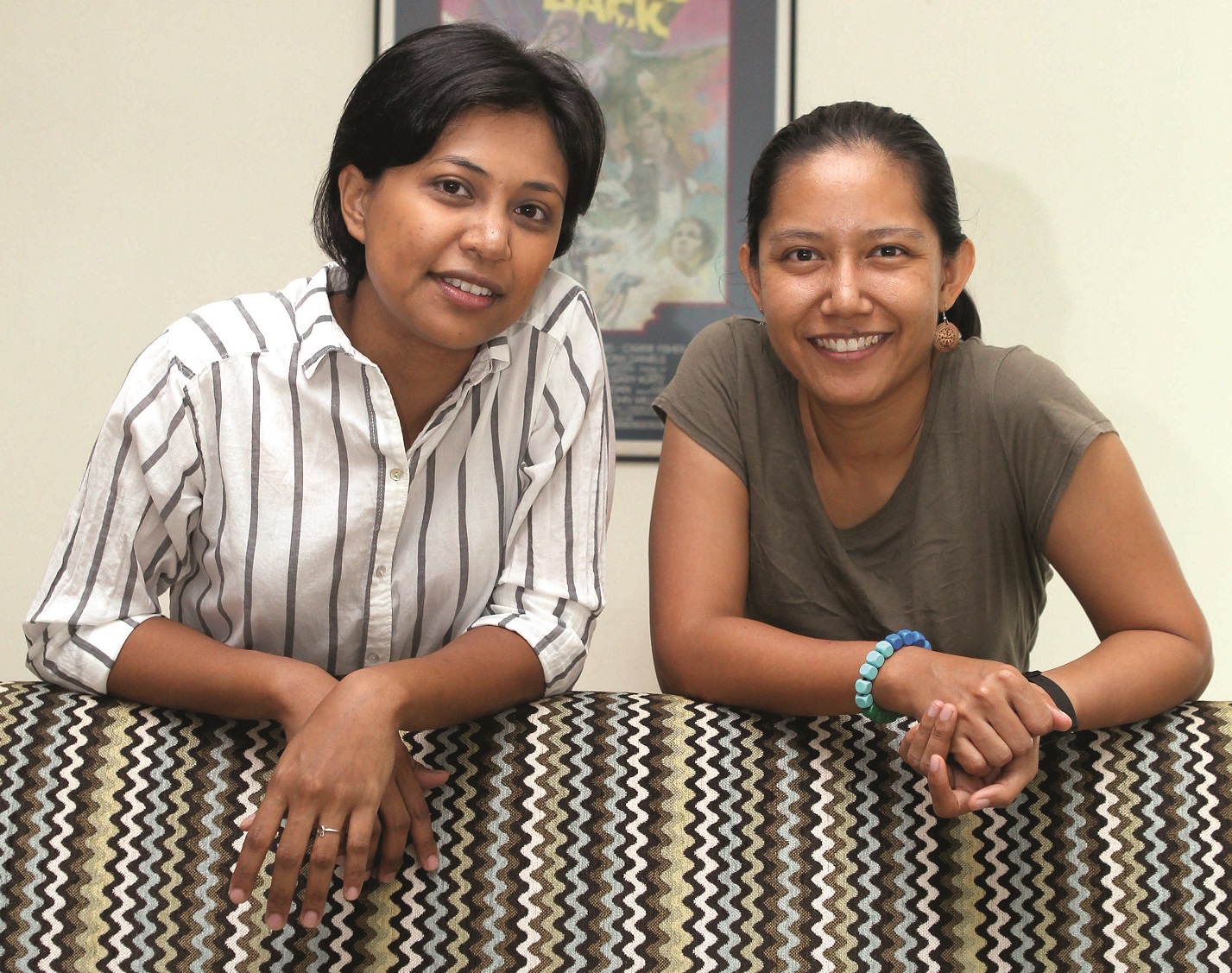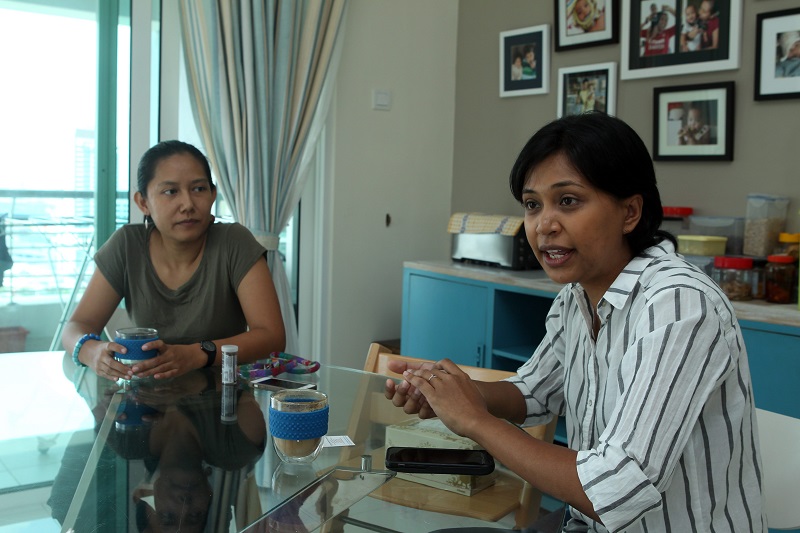
Providing financial assistance, albeit in small amounts, purely on the basis of good faith may sound like a risky deal to some, but this is the modus operandi of a non-profit social enterprise known as The Mak Minah Project.
The beneficiaries of the project, who are urban low-income households, are not required to put up any collateral for the interest-free microcredit. To begin with, the microfinance is not a business at all, say co-founders Sara Sukor and Ayu Abdullah. The funding assistance is one of various forms of support the project renders with the aim of helping families get out of a financial rut and ultimately, break free from the cycle of poverty.
Other forms of support that complement its role include helping the breadwinner secure stable employment with a responsible employer, helping the family move to a safer and more conducive living environment and ensuring that the children receive proper care and education.
“We thought of microcredit because that is what we could offer and that is what they (the beneficiaries) would be able to pay back. And it’s interest-free because we don’t intend to earn any money from this; it is purely to help the families,” says Sara, whose father is a pioneer of microcredit in Malaysia. While he is not a part of this project, she attributes her knowledge of that form of financing to him.

According to Sara, who is also a co-founder of one of the well-known soup kitchens in the Klang Valley, Need to Feed the Need, the idea came about when she was engaging with the people during street feeding sessions. “When you go there every week, you become a familiar face to the people, and they start to talk about their problems. When they told us that they were facing problems with their rents or their landlords and so on, curiosity got the better of us and we decided to pay them a visit.
“We were shocked to the core. The rooms were partitioned with wooden panels ... three to four rooms within a small space. We decided that they couldn’t live like this, especially with their young children. One of the families related how their daughter opened the door to a room and saw a body — a drug addict who had overdosed — and the father did not know how to explain it to her,” says Sara, explaining the origins of the project. The shoplots in the bustling Chow Kit area are home to many who live one-family-per-room in the space above them, separated by flimsy walls.
Interestingly, the project gets its name from a character named Mak Minah in P Ramlee’s movie Masam Masam Manis, who owns a lodging house.
“Our mission is social mobility and we just want to help people get out of their situation and [eventually] the poverty cycle. Because of the location of the soup kitchen, most of the beneficiaries are from the Chow Kit area, but we are looking to work with others from other areas too,” says Ayu.
The money for the microcredit comes from crowdfunding while the operational cost is covered by what they call the “family and friends’ grant”.
It is no coincidence that Sara and Ayu, both 35, are also best friends. Fondly referring to themselves as Mak Minahs, the duo started the project with another friend who has since moved on to a separate venture. Their first microcredit project was in 2014.
Today, Sara and Ayu are assisted by two project support officers — Maisyarah Mazlan and Alishia Zulkifli — whom they call Kak Minahs.
What is fascinating about The Mak Minah Project is that it is almost entirely based on trust. While the parties concerned do enter into a simple agreement — agreeing to participate in the project and repay the loan on the beneficiary’s terms — no supporting documents are required.
Over the years, there have been some defaulting participants, but many did repay their loans in full. Sara says no action has been taken against the errant ones.
“A lot of it is based on gut feelings and chemistry,” she says of the selection process. All the participants of The Mak Minah Project are beneficiaries of the soup kitchen.
“We build on the experience of working with the soup kitchen. Scaling up involves putting in place standard procedures. But the final decision still involve instincts,” Ayu says.
In fact, there are requirements to be fulfilled before a household is considered eligible for microcredit. For instance, the breadwinner must have a job to pay for grocery and utility expenses and not have a drug problem. There is also a restriction on approaching loan sharks to settle any debt. For a holistic and sustainable approach, The Mak Minah Project also provides information regarding financial and family planning as well as professional work training services.
One of the challenges The Mak Minah Project faces is the grey area it is placed in due to the nature of the organisation. The co-founders, however, assure that it is not a moneylending or financial institution. “We do not make money from the participants and the money repaid goes to the next family,” Sara stresses.
However, the biggest challenge for the duo is turning people down. “It’s the hardest thing to do … knowing their problems but not being able to help,” they say, adding that this problem could be alleviated if they have more staff and financial support.
Strategic partnerships between non-governmental organisations can also help, says Ayu. “When you move families out of an area, the soup kitchen will have fewer mouths to feed,” she says.
In some ways, The Mak Minah Project works with a segment of society that has fallen through the cracks — the urban poor who have difficulty making ends meet. But to say that the project provides only microfinance would be a misrepresentation of its true cause, which is to strive to provide a window of opportunity for the needy families to break the cycle of poverty, beginning with the humble act of lending an ear.


